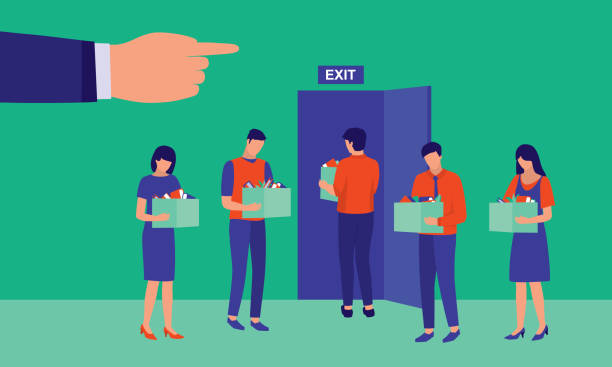Difference between Layoffs and Firing: Tech giant Google’s parent company Alphabet Inc on Friday announced that it is laying off 12,000 of its employees, which is around 6 percent of its total workforce employed globally. According to CEO Sundar Pichai, Google witnessed “dramatic growth” in the last two years and hence hired many employees for a “different economic reality” than what Google faces today.
As the world economy has been gearing up lately to normalcy after the disruptions caused by the pandemic, big multinational companies such as Amazon, Meta, and Microsoft have been laying off their employees. But, do you think layoffs and firings are similar? If yes, then you need to read further.
What are Layoffs?

For a staff member, you cannot afford to keep — but would definitely rehire in the future — consider a layoff. This type of separation implies there will be a job waiting for the employee when business conditions improve.
Employees who work in construction, for example, and are unable to perform their duties in the winter, are often laid off for the season with the promise of returning to work when conditions improve.
In other industries, layoffs could result from loss of business, contract delays, or during slow times. The employee is off work, but they have the expectation that when things improve, they’ll be back on the job at the same rate of pay and with the same employment conditions.
What is firing?

For staff members you would never want to go back on the payroll, firing is the correct option. These staff members have committed a significant rule break or major policy infraction on the job. Whatever the reason to terminate them, their professional relationship with your company is at an end — they would be ineligible for rehire in the future.
Layoffs vs firing
Layoffs and firings are two different concepts in the corporate world and being laid off do not always mean an employee’s fault or underperformance.
Being fired means that your employer let you go for reasons that were personal to you. Some businesses may also refer to this as “terminated. Layoffs are different because they mean that the company has eliminated your position for strategic or financial reasons and not due to your fault.

Poor performance, violation of company standards, failure to learn the job after being hired, and failure to get along with team members are all common reasons for dismissal. This may also be referred to as termination. Most times, termination refers to being fired.
A layoff, on the other hand, typically affects more than one person at a time and is caused by company changes, restructuring, acquisitions, financial struggles, pivots in the business model, economic downturn, and so on.
What to Say If You’re Laid Off?
If you were laid off and need to explain it in a job interview (for example, when they question, “why did you leave your previous position?”), the greatest method is to be simple and direct in your response and meet reality squarely in the face.
Layoffs are a normal occurrence in many businesses and are nothing to be ashamed of or embarrassed about discussing.
As a result, you should provide a clear, concise explanation such as “I was laid off” or “The company went through layoffs and my position was abolished.”
Use the word “terminated” sparingly since it frequently indicates that you were fired rather than laid off, which is not what you want employers to believe.
What Should You Say If You’ve Been Fired?
If you were dismissed, you should own your error and explain what efforts you’ve made to prevent it from happening again. However, there are several things you should never mention to your supervisor (for example, “I had difficulties getting along with my boss and we fought frequently”). This will give the impression that you have a persistent attitude problem.
As a result, you must be strategic in what you communicate and how you explain yourself! In general, you want to avoid seeming as if you have a reoccurring attitude problem or a general attitude problem. You also don’t want to sound like there was a pattern of the same mistake/issue occurring several times.
Why? As this will SCARE employers and make them not want to hire you.
Also read | Apple iOS 16.3 update and release date confirmed. Check out all expected features



